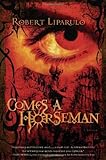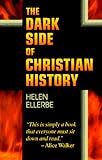
Francis Bacon once wrote that '[i]t is as natural to die as to be born.' Why, then, does death seem so unnatural? Why is death so difficult to deal with? Why is it so hard to move on from someone's death?
Darren Aronofsky's new film The Fountain tackles death head on in an incredibly deep metaphysical tapestry. Tom (Hugh Jackman) and Izzi (Rachel Weisz) Creo are deeply in love. But Izzie is dying of a brain tumour. Tom is a medical research scientist who brings all of his energies to bear on finding a cure for Izzi. He is desperate - he cannot accept that Izzi is going to die to the extent that his obsessive search for a cure ironically takes him away from the person he loves.
Izzi decides to write a story set in the time of the Spanish conquistadors about Tomas (Hugh Jackman) who goes on a search for the biblical Tree of Life, which is also spoken of in other religious legends and myths, in order to save his queen, Isabella (Rachel Weisz) and kingdom from its demise.
But Izzi leaves the last chapter blank, reassuring Tom that he will know how to finish it. As he struggles with the loss of his beloved, we are transported into space where Tom journeys in a bubble in pursuit of the Tree of Life which will bring his beloved back.

The Fountain moves between past, present, and outer space where we see three quite different, but interconnected, love stories in a kaleidoscope of religious imagery as we explore themes of death, grief, loss, obsession, and the need to let go and move on. Someone has said that The Fountain is easy to understand but difficult to grasp. This is a thinking person's film. It places demands on the viewer to come to grips with its subject matter.
After the film finished in the cinema, I turned to my friends and said, 'That was great. I enjoyed that'. Some patrons in the row in front turned around, grimaced, and said, 'What?! Did you get that?' This will not be a film liked, nor understood, by everyone. But what a great movie to provoke our thinking! I will be seeing it a second time to try to catch some of the more subtle nuances.
Hugh Jackman and Rachel Weisz are superb. Apparently, Cate Blanchett and Brad Pitt were originally cast in the movie. But both walked away from the production. Aranofsky rewrote the script, Jackman (who signed on at a reduced rate) and Weisz accepted the roles to make the re-envisioned film.
The cinematography is brilliant. Instead of using CGI, Aranofsky chose, instead, to film chemical reactions in petri dishes believing that it would add to the timlessness of the movie. It's wonderful!
The Fountain is deeply religious/spiritual with a rich tapestry of ideas and symbolism in every frame. It is mesmerizing, beautiful, profound, engaging, and has something to say. Go and drink from The Fountain!
My Rating: **** (out of 5)
Positive Review
'If you're a movie lover who despairs that big-scale filmmaking today consists of little more than a self-cannibalizing system of clichés; if you are fed up with putatively ambitious movies that turn out to sorely lack not just vision but actual brains and actual heart as well, then you need, badly, to see The Fountain, soon, and under the most optimum viewing conditions available. It may well restore your faith in the idea that a movie can take you out of the mundane and into a place of wonderment.' -
Glenn Kenny/PremierNegative Review
'Aronofsky's reach far exceeds his grasp with this film, and the muddle he concocts makes one wonder if there was ever a solid foundation for The Fountain. Hope may spring eternal, but this fountain is a dry hole.' -
Marjorie Baumgarten/Austin ChronicleContent Advice
Some intense sequences of violent action, some sensuality and language.
AUS: M
USA: PG-13







